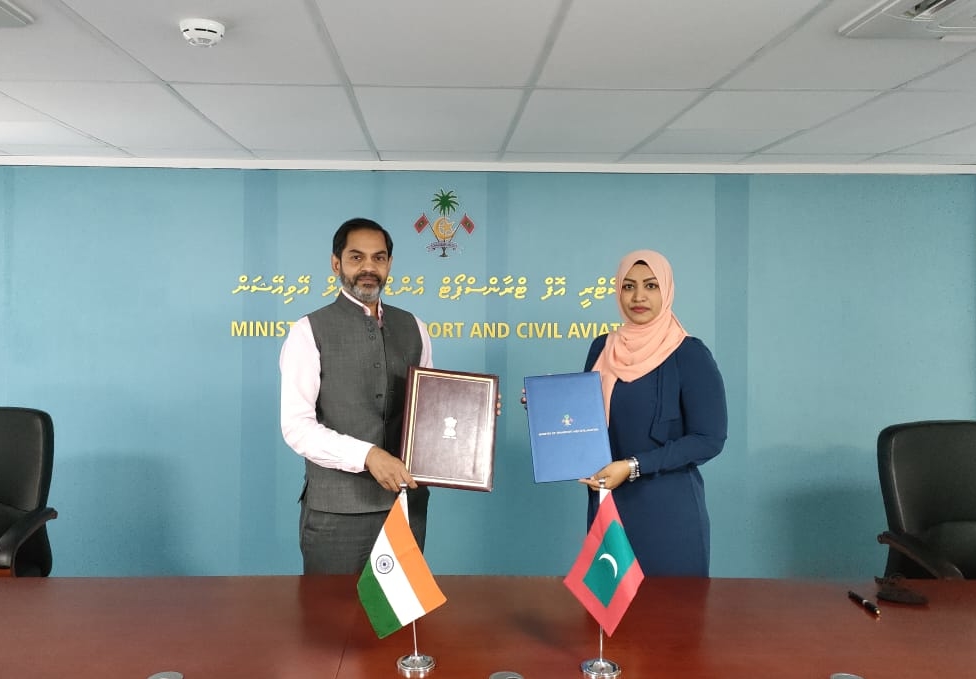Malé, Maldives – Maldives and India today signed an agreement to augment the security, safety and marine environment protection in the region, through cooperation in the long-range identification and tracking of ships (LRIT) System.
The MoU was signed by the Minister of Transport and Civil Aviation Aishath Nahula and the High Commissioner of India to Maldives Sunjay Sudhir.
This agreement provides Maldives access to the Indian National Data Centre (NDC) for LRIT that was set up in July 2009 and upgraded in 2016 to support the requirements of the regional states. NDC is manned round the clock and has a complete backup or disaster recovery centre at DNCO New Delhi.
The Indian NDC has been providing LRIT services to Sri Lanka since October 2014.
With the signing of MoU, Maldives will be able to utilise the services of Indian LRIT – National Data Centre (NDC) & its ‘LRIT’s Conformance Tests’ facility at No Cost Basis thereby assisting Maldives to fulfil its obligations as an IMO member related to LRIT without requiring to maintain separate facilities.
The National Data Centre also provides owners & managers of shipping companies are also provided restricted access to LRIT monitoring through the web so that they can continuously monitor only their own vessels and can update the data required by the Directorate General of Shipping.
This allows continuous monitoring of ships and any issue like hijacking, accident or incident like in the case of Navios Amaryllis off Kaafu atoll in August this year is promptly brought to the fore.
Long Range Identification and Tracking (LRIT) of ships was proposed at the International Maritime Organization (IMO) in London following the 9/11 attacks.
The LRIT was established as an international system on 19 May 2006 by the International Maritime Organization (IMO) and it is mandatory for all governments which have contracted to the IMO. This system provides for the global identification and tracking of ships to enhance the security of shipping and for safety and marine environment protection.





